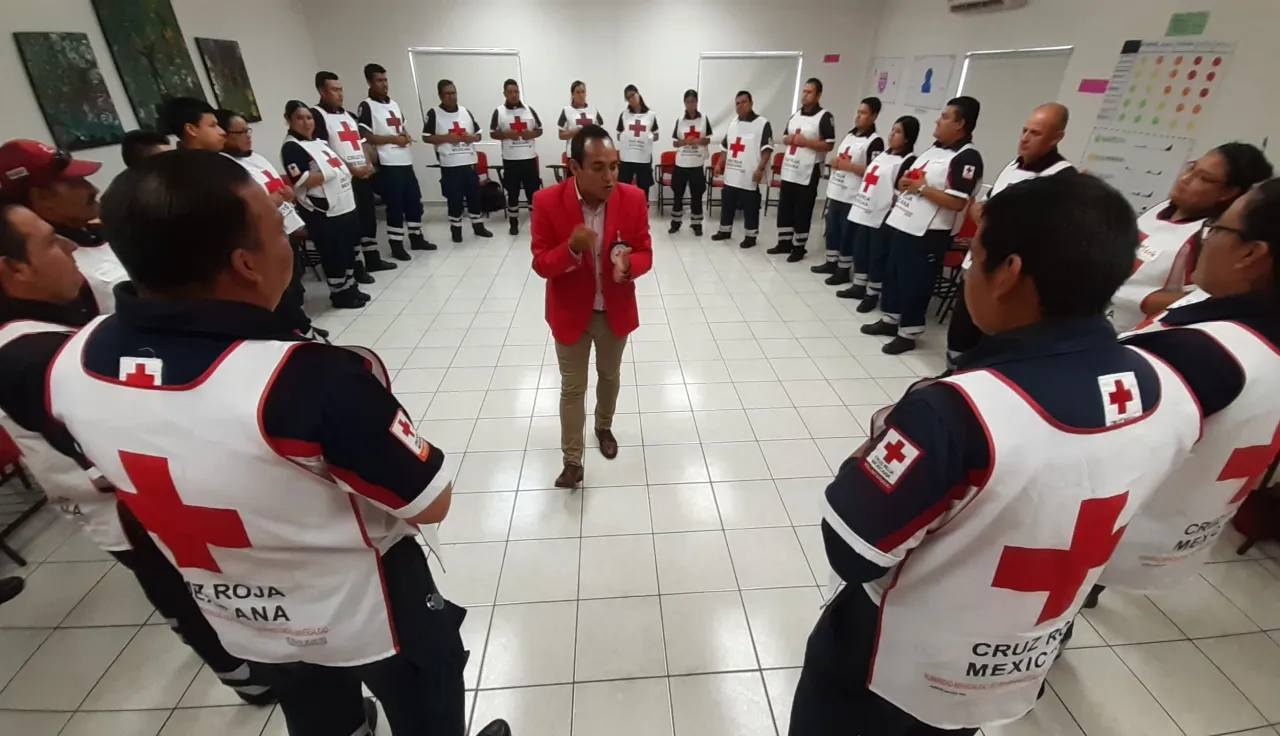Mexico: working with the Mexican Red Cross

The ICRC works in close collaboration with the Mexican Red Cross to mitigate the consequences of violence, increase the National Society’s presence and strengthen the resilience of communities affected by violence, including activities such as assistance for migrants, Restoring Family Links, increasing access to primary health care and the provision of psychosocial support.
The Mexican Red Cross implements the Safer Access Framework to mitigate the risks volunteers are exposed to during operations. As a result, methodologies better adapted to the needs of each context have been developed and disseminated.
We worked together on the development of a national policy on security for the National Society. We also strengthened support for operational communication, which contributes to building acceptance of our organization's values, principles and way of working.
We worked with the Mexican Red Cross on the National Psychosocial Support Programme to strengthen assistance for communities affected by violence.
In Valle de Juárez (Chihuahua), we wound up the Creating Humanitarian Spaces programme that we had been implementing in schools in the area. We handed the complete methodological toolkit over to the Mexican Red Cross so that it can continue to run the programme that has benefited and strengthened communities affected by violence.
We contributed to the National Society's strategic alignment programme by holding sessions on ICRC policies and the Fundamental Principles. We also supported the National Society's participation in the 33rd International Conference of the Red Cross and Red Crescent.
Abraham is a national youth ambassador. During the health fairs held at schools in Acapulco, he talks to children about cancer.
